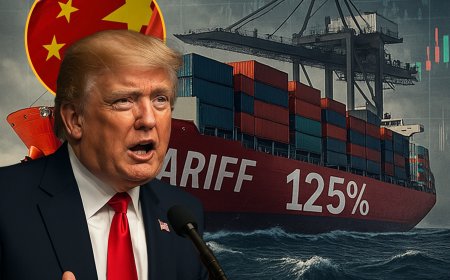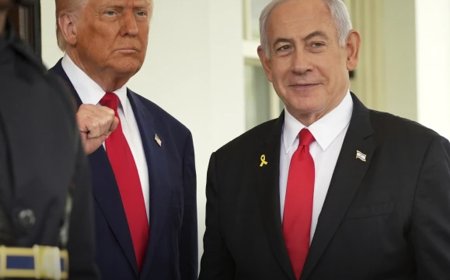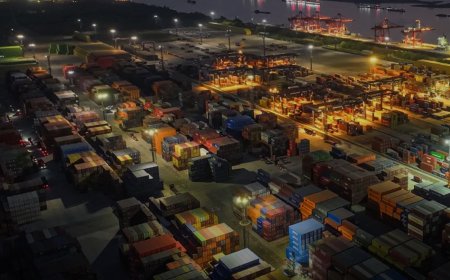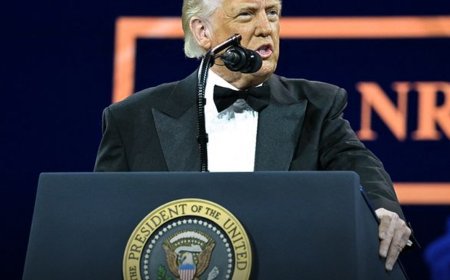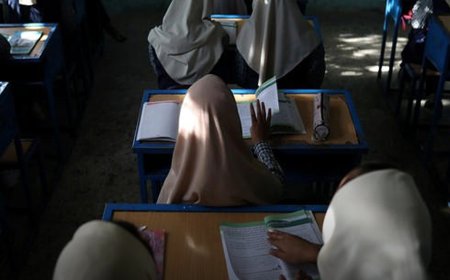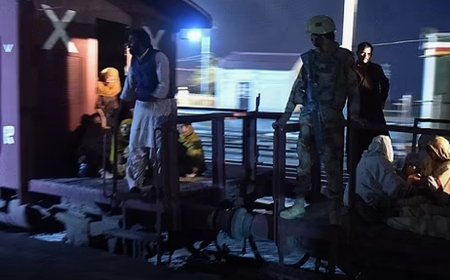Trump Pauses Global Tariffs for 90 Days—But Slaps 125% Duty on China as Trade War Escalates
In a sudden yet strategic pivot, former U.S. President Donald Trump has announced a 90-day pause on increased tariffs for most nations, offering a temporary window for trade negotiations.
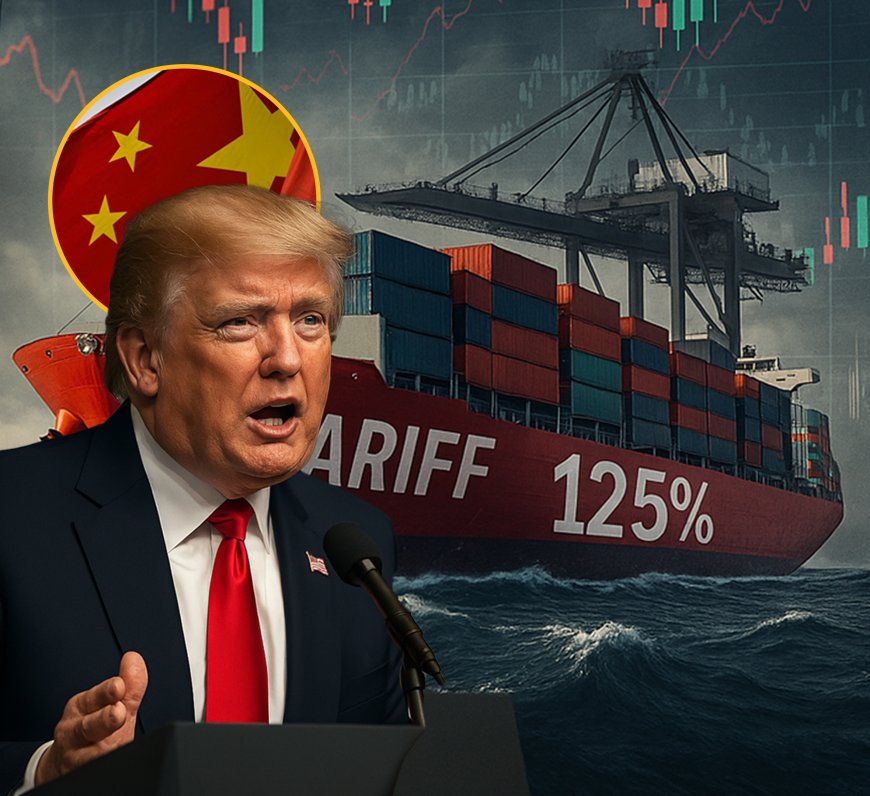
In a sudden yet strategic pivot, former U.S. President Donald Trump has announced a 90-day pause on increased tariffs for most nations, offering a temporary window for trade negotiations. However, this partial climbdown came with a fierce escalation toward China, as Trump doubled down by raising tariffs on Chinese goods to 125%, the highest rate imposed yet in the ongoing trade conflict.
The move follows a week of intense market instability, a bond market sell-off, investor backlash, and pressure from economists and business leaders who warned that a full-scale tariff war could cripple the U.S. economy. Trump acknowledged this while speaking to reporters, saying:
“People were getting a little bit yippy, a little bit out of line... but we had to take the medicine.”
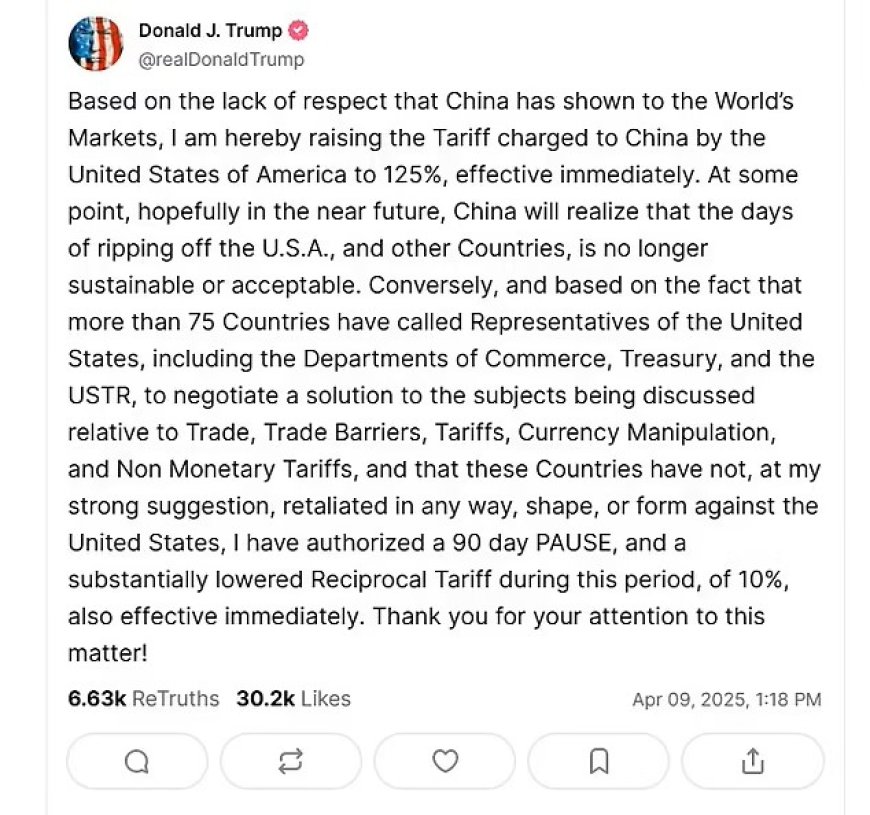
A Tactical Retreat, or a Calculated Strategy?
Despite being hailed by critics as a "blink," Trump and his team insist the 90-day tariff freeze was part of the plan — a strategic pause designed to generate negotiating leverage with over 75 trading partners. U.S. Treasury Secretary Scott Bessent said the pause applies to baseline 10% tariffs that would’ve otherwise impacted nations like India, Vietnam, the EU, and others.
However, China has been singled out for what Bessent called its “bad actor” behavior in global trade. After Beijing retaliated against previous U.S. duties by imposing additional tariffs on American imports, Trump responded with a surprise hike to 125% tariffs on Chinese goods, effective immediately.
“They sell us five times more than we sell them. I think it’s an own goal by China,” Bessent stated.
Market Relief, But Global Uncertainty
The announcement sparked a 6% surge in the Dow Jones, signaling temporary investor relief. However, analysts say markets remain fragile amid Trump’s unpredictable tariff tactics. European and Asian markets also showed signs of recovery, but the underlying uncertainty remains.
Meanwhile, countries spared by the 125% China-specific hike, like the UK, India, and EU members, continue to negotiate to soften long-term tariff impacts. UK officials welcomed the pause but warned of the broader implications of a prolonged trade war.
“A trade war is in nobody’s interest,” said a Downing Street spokesperson. “We will coolly and calmly continue to negotiate in Britain’s interest.”
Pharma & Industry Concerns
Concerns are rising that future rounds of tariffs might include pharmaceuticals — a move that has drawn fire from British lawmakers and global healthcare advocates.
“Why would you tax scientific breakthroughs at your own border?” said Kit Malthouse, chair of the UK’s All-Party Group on Life Sciences. “This could backfire terribly.”
China’s Response: Defiance, Not Surrender
China has vowed to “fight to the end.” Beijing retaliated with 84% tariffs on U.S. goods and denounced Trump's tactics as “a mistake on top of a mistake.” The Chinese government has also filed a formal complaint with the World Trade Organization (WTO), accusing the U.S. of escalating without cause.
Despite mounting pressure, Trump appears unfazed.
“There’s a lot of winning out there,” he told reporters. “We’re stronger than ever.”
What’s Next?
The U.S. now enters a critical 90-day period to negotiate better trade deals with over 75 countries. Talks are expected to open with India, Vietnam, the EU, and Japan. Trump insists this is a step toward a “transition to greatness,” but economists warn that escalating with China while managing global relationships will be a complex balancing act.
The world’s two largest economies remain entrenched in a trade standoff, with ripple effects set to touch everything from global supply chains to inflation and investment flows.
What's Your Reaction?







